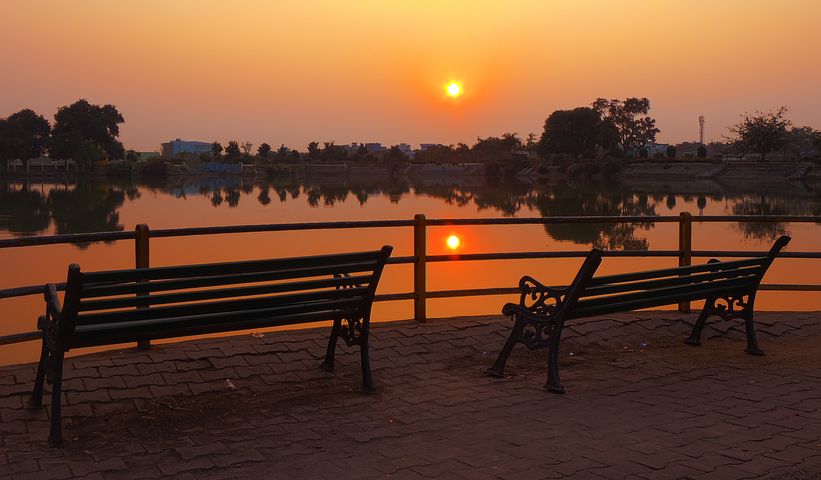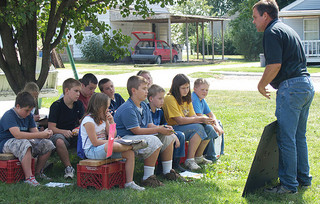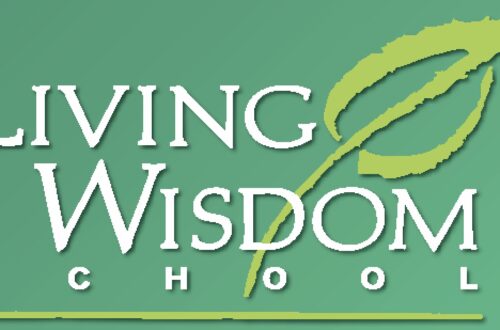There are a lot of things to like about change — it keeps life interesting; things can get better (our preference!); and we experience the pleasure of creating things that didn’t exist before. Not-change is good too. We get stability, and familiarity, and the comfort of knowing the next steps, especially when we’re in unfamiliar territory – and there’s probably no territory more unfamiliar to the average person than my regular stomping ground: Death. We may have postponed it, but we haven’t eliminated it – and we DO need to change how we do it, and fast.
Preserving and conserving – our theme for this issue – tends to mean unchanged, more often than not, and the ossified funeral industry shows it. After years of natural foods work (where preservatives are minimized and conservation is key) I’m now in the funeral business, and I have a lot of contact with Last Acts of “preserving” that are, to my mind, very out of place in the 21st century. Embalming our bodies so they don’t decompose easily comes to mind. Temporarily sealing us up in polyfoam-lined metal caskets, and putting those inside concrete boxes, and then burying or entombing them in a “forever” piece of ground is another preservation activity that should have seen its day.
Ironically, this sort of preservation is the antithesis of a true preservation that conserves — that saves for the future; that refuses to waste – and yet it’s an American funeral style that’s considered both “conservative” and “traditional”, and until a few short years ago, it was all that you could get. Even if you wanted something different, something that preserved your personal values and conserved your energy when you wound up your time on-planet. And then things changed.
The Natural End Map and Pledge
Some years ago, when it became apparent that I wouldn’t be buried in my biodegradable coffins before I made or sold any, I created the Natural End Map as a way to help Natural Burial Company customers find providers who would help them get a more natural end. I didn’t ask that these providers buy or sell my products – many still don’t – all I wanted to know was if they would promise to help this new natural customer find local natural funeral options to the best of their ability. Spelling out minimum expectations made sense, and so the Natural End Pledge was created; conventional funeral service providers started signing it, and I listed them on www.naturalendmap.com, where you can now find multiple traditional providers around the country who are eager to help their industry change.
The Natural End Pledge for providers is simple and reasonable (you can read it in full on the website) – with the funeral services emphasis on no-embalming required; stocking biodegradable coffins and urns; and helping client families to locate natural cemetery options. Each Natural End provider agrees to abide by the Natural End Pledge’s core principles in the categories that apply to them. They sign it, anyone can see the pledge they’ve signed, and they’re on the honor system to fulfill their promise.
Oregon’s Natural End Pledge Signers
We’re fortunate in Oregon to have a number of funeral service providers willing to expand their horizons and stop preserving us so diligently. The Natural End Pledge signers listed below are at the forefront of a change in funeral service in our State, expanding their traditional roles and practices to accommodate the natural funeral and burial services that we Oregonians increasingly want. Kudos to them!
• Aftercare Cremation and Burial Service – Portland, 2010
• Cornerstone Funeral Services – Boring, 2009
• Family Memorial Mortuary – Gresham, 2010
• Mt. Scott Funeral Home – Portland, 2010
• Omega Funeral and Cremation Service – Portland, 2009
• River View Funeral Home and Cemetery – Portland
• Threadgill’s Memorial Services – Beaverton, 2010
• Umpqua Valley Funeral Directors – Roseburg, 2014
• Virgil T. Golden Funeral Service – Salem, 2009
(You can get more information on each of these providers, including contact info and links to their websites, by visiting www.naturalendmap.com.)
Help Us Grow the Map
We certainly don’t have everyone doing the natural funeral thing in Oregon listed on the Map yet, but these ARE the only businesses who’ve signed the Pledge so far. If you know of – or are – a provider who should be listed, then download the Pledge and send it in! We want more providers on the Natural End Map- and they don’t have to be Oregonians, either; we’ve all got friends all over the country, and these natural options need to be easily available everywhere. Remember, just like all our other natural living lifestyle changes, the more you make your desires known to those who sell them, the more you pave the way and make it easier for those who’ll come after you. And that’s preserving and conserving at its finest.
Cynthia Beal is the founder of the Natural Burial Company, the impulse behind the Sustainable Cemetery Studies Lab at Oregon State University, and the owner of two Lane County cemeteries in Eugene and Junction City, Oregon. — You can download a free Natural Funeral Planner at www.naturalburialcompany.com, and locate natural service providers at www.naturalendmap.com.






